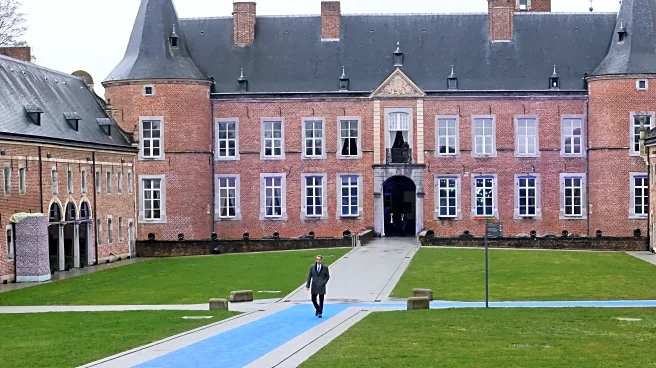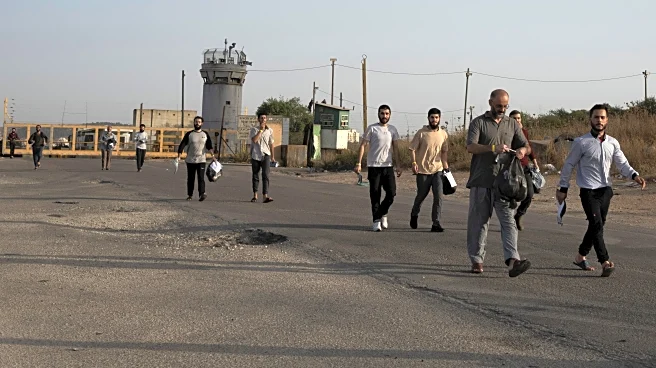What's Happening?
A study conducted by Northwestern Medicine and Ukrainian physicians has found that Botox, a purified form of botulinum toxin A, can significantly reduce phantom limb pain in Ukrainian war amputees. The research involved 160 amputees treated at two hospitals
in western Ukraine from 2022 to 2024. About 20% of these patients received Botox injections around painful nerve endings, alongside medical and physical therapy. The results showed a 40% improvement in phantom limb pain for the Botox group after one month, compared to a 10% improvement in the control group. However, the effects were temporary, with pain relief diminishing after three months. The study suggests that Botox could be a valuable short-term tool for managing post-amputation pain.
Why It's Important?
This study offers a potential new treatment avenue for the estimated tens of thousands of Ukrainian soldiers and civilians who have lost limbs due to the ongoing conflict. Phantom limb pain is a significant barrier to rehabilitation and quality of life for amputees. The use of Botox could enhance their ability to use prosthetics and improve mobility, offering a path to a more dignified life. Additionally, the findings may have broader implications for the over 2 million Americans living with limb loss, potentially leading to new pain management strategies in the U.S.
What's Next?
The research team plans to conduct further studies to explore the long-term benefits of repeated Botox injections and to refine patient selection criteria. They aim to follow participants for a year to assess the impact on residual limb pain, phantom limb pain, and associated psychological factors like anxiety and depression. The team is also investigating other novel treatments for war-related injuries, including traumatic brain injury and PTSD.

















